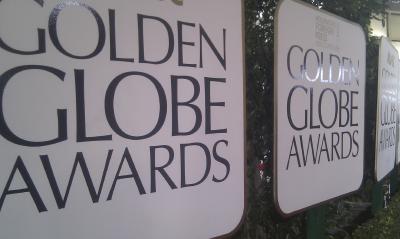The body behind the Golden Globes, the Hollywood Foreign Press Association, has backed a new set of by-laws, in the first step towards winning back the trust of the wider entertainment industry. More than three quarters of the membership backed changes that will see about fifty new members – including more from black backgrounds – reduce opportunities for corruption by making the running of the organisation more transparent and restrict their individual benefits. It’s understood that many of the members who opposed the changes are those who will see their privileges removed – those who are no longer working journalists but under the previous by-laws had continued to maintain the same advantages.

The revelation that the organisation of nearly ninety members didn’t have any members from Africa or the Caribbean, back in February, compounded existing criticism of the organisation, which has been marred with accusations of corruption – as some members are understood to vote for productions that offer them gifts or trips. The HFPA was also criticised for paying its own members to carry out the administration of the organisation, rather than hiring outside contractors.
Many of the allegations were either long since known about or open secrets in Hollywood, but coming after the rise of the Black Lives Matter movement, they could no longer be swept under the carpet.
Since the February article in the LA Times, much has changed. The HFPA has lost four members – one was expelled in an effort to show the organisation was trying to reform, two others quit, claiming the organisation was resistant to reform and another died, highlighting the fact that many members have continued to benefit from the organisation well into their eighties and beyond.
On a practical level, in addition to campaign groups such as Times Up calling for changes, the NBC television network has pulled the plug on the 2022 Golden Globes ceremony – traditionally a star-studded curtain raiser to the awards season – and most major Hollywood publicists have refused to work with HFPA members, LA-based journalists working for foreign outlets, resulting in the peculiar situation where publicists are refusing to allow, for example, BBC Arabic viewers to see interviews with Arabic film-makers or people making productions about the Middle East, and Latin American audiences are being denied interviews with stars such as Salma Hayek.
Many parts of the industry have long questioned whether such a small, unrepresentative, self-governing group of little-known journalists, writing for often even less-known foreign media outlets, should be able to wield the power they have done in Hollywood, but ultimately, the entertainment industry thrives on having celebrities on red-carpets and collecting awards. But in the current climate, the status quo became untenable and members have now agreed – among other things – to forgo gifts, trips and the right to have a photo taken with every celebrity they interview, making some members wonder what the point of continued membership might be.
Announcing the result of its vote, the HFPA’s president Ali Sar released a statement, saying: “Three months ago, we made a promise to commit to transformational change, and with this vote we kept the last and most significant promise in reimagining the HFPA and our role in the industry. All of these promised reforms can serve as industry benchmarks and allow us to once again partner meaningfully with Hollywood moving forward.”
NBC stopped short of scheduling the 2023 Golden Globes, saying: “We’re encouraged by the passage of the amended bylaws. This marks a positive step forward and signals the HFPA’s willingness to do the work necessary for meaningful change.”
But some critics have cautioned that it’s too early to know whether the reforms will result in the changes they’re hoping to see. Under the new arrangements, the HFPA board will be made up of 12 members, alongside three outside directors – but critics have noted that the first new board will be selected before the organisation has had a chance to admit a significant number of new members. And while publicists have said they want to see a larger, more diverse membership before they start working with the HFPA again, it’s understood that until they start making talent available to the HFPA, prospective new members are unlikely to come forward, because joining the organisation will ensure that they no longer have access to the stars they rely on to make a living.

It could take one of Hollywood’s most imaginative screenwriters to work out where this will all go from here. As soon as an organisation capitulates to pressure, its critics smell blood and demand more. But most seem to be prepared to give the HFPA the benefit of the doubt for now and for some, there is time. NBC have given themselves a year’s wiggle room and can wait to see how the new-look HFPA takes shape before deciding whether to invite the Golden Globes back on air in 2023.
Other groups, though, will have to make their decisions more immediately. The longer the publicists withhold their talent, the more animosity will build up by the time any new awards can take place; how many of the existing members will want to bestow a Golden Globe on a star who has refused to do interviews with them for two years, bad-mouthed them in the press or even publicly handed back awards.
It is, of course, the case that the likes of Tom Cruise, Scarlett Johansson and Mark Ruffalo, now vocal critics of the HFPA, have previously benefited from their association with the group and they will – over the years – have attended many HFPA news conferences at which the ethnic make-up of the group will have been clear to see in the room in front of them. Did any of them ever comment that there were no black faces among the white, Latino, south Asian, east Asian and others? If they did, they certainly didn’t make a fuss or hand back their awards; they wanted Oscars, and Golden Globe recognition has traditionally been the first step on that path.
And how about the publicists, who began their boycott of the HFPA before acknowledging that their own membership does not include enough black members? And if the publicists are taking action against the HFPA in response to allegations that Golden Globe voters accepted bribes in exchange for votes, you have to wonder who offered the bribes in the first place? The studios that campaign so hard for awards and hire teams of publicists specifically to deal with the HFPA, and their marketing and publicity teams will most likely have been behind many of the gifts, trips and other events designed to get the voters on side. And how long can the studios stand behind publicists who refuse to grant interviews with talent with journalists serving their target markets?
But while the studios, the stars and the groups handing out awards are all vulnerable to cancel culture, the publicists are largely protected, working anonymously behind the scenes. Too few members of the public would care about the ethnicity of the publicist who arranges an interview between a journalist and a director or indeed whether a publicist offers an extra premier party ticket in exchange for a bit of extra airtime. And if the whiff of corruption or hypocrisy were ever to fall back on the public relations experts themselves, the clue is in the job title – they can PR themselves out of the problem. And film fans certainly won’t campaign to cancel publicists.
The HFPA is far from the first organisation in Hollywood to be bounced into such root-and-branch reform; the Academy that hands out the Oscars was embarrassed into boosting its membership, with a focus on improving diversity, by two successive years of all-white acting nominees. But with thousands of members, the Academy was better protected from public opinion, not least because it’s clearly harder to bribe thousands of people than it is to bribe dozens. Incidentally, in the first of those two #OscarsSoWhite years, the Golden Globes nominated David Oyelowo for Selma and Quvenzhané Wallis for Annie (admittedly in the arguably superfluous comedy/musical category), while the following year, the HFPA shortlisted Will Smith for Concussion and Idris Elba for Beasts of No Nation.
It’s also interesting to note that the Academy seems to have come out of the other end of its ethnicity scandal – even though its leading actor Oscars this year went to The Father‘s Sir Anthony Hopkins and Nomadland‘s Frances McDormand, where the corresponding Golden Globes went to Ma Rainey‘s Chadwick Boseman and Andra Day, for The United States vs. Billie Holiday. So what’s more important to the public? The ethnicity of the people handing out the awards or the ethnicity of the winners?

It’s a long road back for the HFPA and the members – or at least the three quarters who most rely on their membership to secure a living – have taken the first step on that road. But the group’s critics will be watching to see whether the reforms lead to the changes they would like. Many in Hollywood have long disliked the HFPA and see this as their opportunity to change it to something they find more palatable to deal with, although some have already indicated that they feel that even under the new by-laws, the members have too much power – not least to change the by-laws again. They’ve successfully turned an organisation they don’t like into a public bête noire, in some cases, to deflect criticism of their own behaviour or demographics. But the HFPA having a problem or two doesn’t mean they don’t too.
Is it more likely that the HFPA is the only bad apple in the bunch or that problems with diversity and corruption have a tendency to run throughout Hollywood – and indeed wider society beyond – in the US and globally. Whether it’s the controversy about sportsmen and women taking the knee, political lobbyists using their connections to gain access to lawmakers or the state of the police in Minneapolis, where a white officer murdered the black man George Floyd last year, sport, politics and policing are certainly not the only areas that have been tainted – like the entertainment industry. And many might argue that show-biz is the least dangerous place for such scandal to hide.
The HFPA almost certainly hoped that this would all just blow away – controversies such as this usually do, but it has continued to linger, for a variety of reasons; the impact Black Lives Matter has had on wider society, the way the pandemic has given people less to do and made the public more introspective, the fact that the scandal broke just after this year’s awards, giving the wound a full year to fester.
But perhaps the public could hold some sway – with the pandemic receding in some western countries, to the extent that cinemas are reopening, when film fans start to re-engage with the stars, they might be more forgiving of the system than publicists and campaign groups think; like the HFPA members themselves, the public will want to see their favourite stars on the red carpets and might not care how they got there. And the public might start to cancel stars who take positions they oppose.
In time, things will wash over, but how will Hollywood be changed? All those working in and around the industry – from the studios and stars to the awards bodies and the publicists in between – might be a little more transparent in their operations and more representative of US demographics, but films will be made, fans will enjoy them, awards will be handed out and box office takings will be boosted as a result. It will be business back to normal – or nearly normal – as the public’s attention tilts elsewhere for a while.
